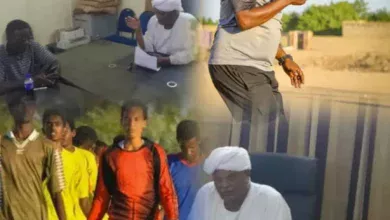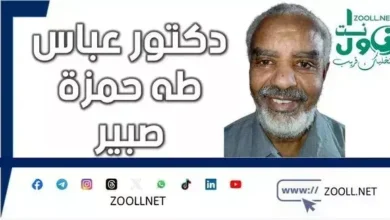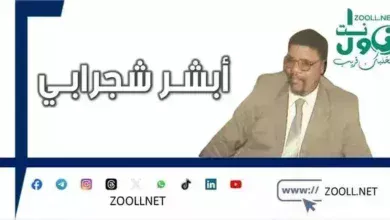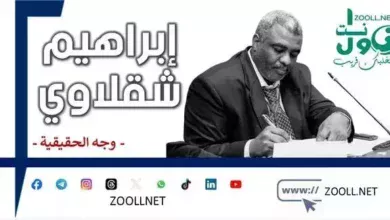The implications and implications of the new Middle East project ✍️ Professor. Fikri Kabashi, the Arab secretary
The New Middle East project, developed as a study by Dr. Bernard Lewis to divide Arab and Islamic countries, which fell in love with many leaders of the major countries and also found support and enthusiasm from the rest of the active countries of the world, who sought to transform simple speculation or intellectual brainstorming into a tangible practical reality. Bernard Lewis was born in London in 1916. He is a British orientalist, Jewish by religion and American by nationality. He graduated from the University of London, where he worked as a lecturer in the Department of History of Oriental African Studies. Historian Bernard Lewis began developing his famous plan to dismantle the constitutional unity of a group of Arab and Islamic countries, including Iraq. Syria, Lebanon, Egypt, Sudan, Iran, Turkey, Afghanistan, Pakistan, Saudi Arabia, Gulf countries and North African countries…etc., and the fragmentation of each of them into ethnic, religious, sectarian and sectarian states. He attached to his detailed project a set of drawn maps including the countries proposed for fragmentation.
He believes it is necessary to divide Arab and Islamic countries again into tribal and sectarian units and to restructure the countries of the region, with the stated mission being to train their people for democratic life and exploit ethnic contradictions. and tribal and sectarian fanaticism.
In fact, Bernard Lewis's project is both the most serious and the most practical, and its intellectual foundations are dangerous, and play on sectarian and sectarian strings based on a deep understanding of a thinker versed in understanding the Islamic psychology, and through a conscious reading of Islamic history and focusing on the Arab power triangle of Iraq, Syria and Egypt, as well as the state parties Sudan, Yemen and Morocco.
Some may see that this project, like others, is nothing more than intellectual fantasies carried out by a researcher or a student who has nothing to do with the nature of the situation in the Middle East. Now, the facts which took place from the division of Sudan. and the acceleration of the pace of the division of Yemen, in addition to the plan to divide Iraq entering a realistic phase, triggered the Syrian crisis and its repercussions in Lebanon. Many have pointed out Bernard's seriousness, realism and practical sense. Lewis's plan to divide the countries of the Arab world, the new name of which will be the Greater Middle East. For the future picture of the Middle East to be complete, three elements must be present in conjunction with the military and security presence:
(A) Changing the existing political structure in most countries of the Islamic world so that it is based on a mixture of democratic mechanisms and ethnic or sectarian federations, and this is the essence of the project. If democracy were achieved without the federal structure, this might be possible. be regimes and governments at odds with the American administration or vision, because provoking ethnic or sectarian divisions, without the availability of a democratic context to control them, could make them the cause of an ongoing conflict that prevents the political and economic stability desired by the American Vision. In addition, the federal structure based on democratic mechanisms will allow the United States to intervene permanently with the different sectors of each part of the country, on the one hand, and between the parties united at the federal level, on the other hand.
(b) Focus on a Middle Eastern identity as an overarching framework for the desired multiple federations, because with their effective presence, Arab and Islamic identities are absent from any limited or global regional bloc.
(c) The need to end armed conflicts and put an end to all armed action, whether under the slogan of resistance to the Israeli occupation or against the American military presence in the region and among the countries included in Bernard Lewis's fragmentation project:
1. Sudan, which is divided into four states: Nuba State, Islamic State of North Sudan, Christian State of South Sudan and the small State of Darfur.
2. North African countries: Libya, Algeria and Morocco are being dismantled with the aim of establishing the Berber State, the Polisario State, and the rest are the States of Morocco, Algeria, Tunisia and Libya.
3. Iraq, the dismantling of Iraq on ethnic and sectarian bases, creating a mini-Shiite status in the south around Basra, a mini-Sunni status in the center of Iraq around Baghdad and a mini-status Kurdish in the north.
4. Syria, dividing it into distinct regions according to ethnicity, religion or sect, creating an Alawite state along the coast, a Sunni state in the Aleppo region, a Sunni state around Damascus and a Druze state over parts of Syria and Lebanon.
As I pointed out previously, this project, like others, are just intellectual fantasies carried out by a researcher or student that have no relation to the nature of the situation in the Middle East. However, this does not deny the existence of foreign projects. This does not hide the fact that there are internal factors that encourage the adoption and implementation of these projects. Playing on sectarian conflicts or sectarian differences can only be achieved in the presence of elements and influences that push for fragmentation and division. and the collapse of the state structure. There is still hope that we can resist these plans by adopting the foundations of modern state building and protecting the components of an independent national state that has become, as we can see and feel. exposed to all forms of demolition and weakening.
Thus, build a democratic Arab society, establish the principles of social justice, protect human rights at the legislative and executive level, ensure the development of education, encourage scientific research and submit the project of the new Middle East , developed as a study by Dr. Bernard Lewis for analysis, dissection and scientific critique by scholars, specialists and interested individuals, and the proposal of alternatives. All these elements are considered the most essential elements for the construction of a modern Arab state, which defends the principle of equal citizenship in rights and duties. , and consolidates the values of the rule of law.
The teacher. Fikri Kabashi, the Arab secretary






